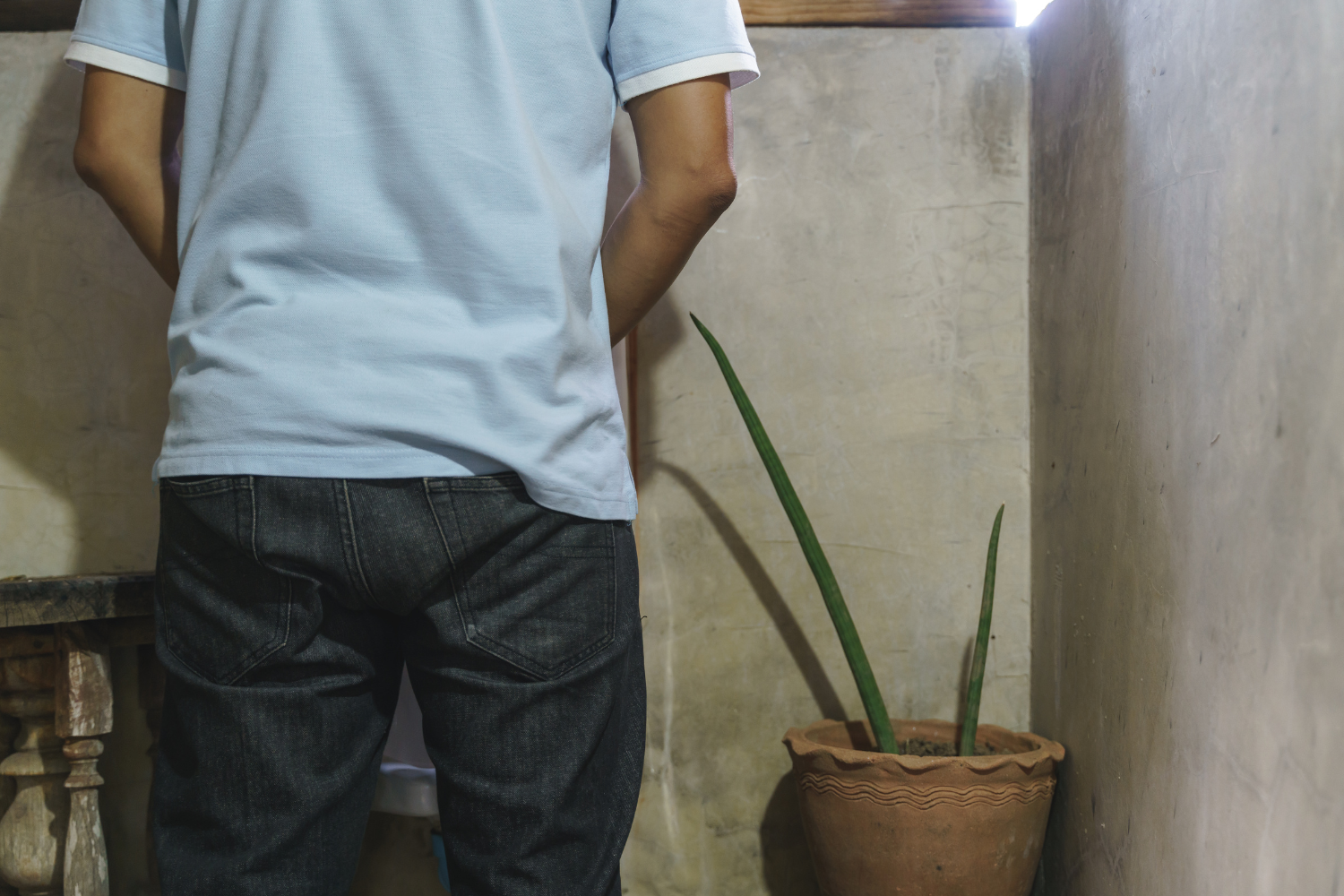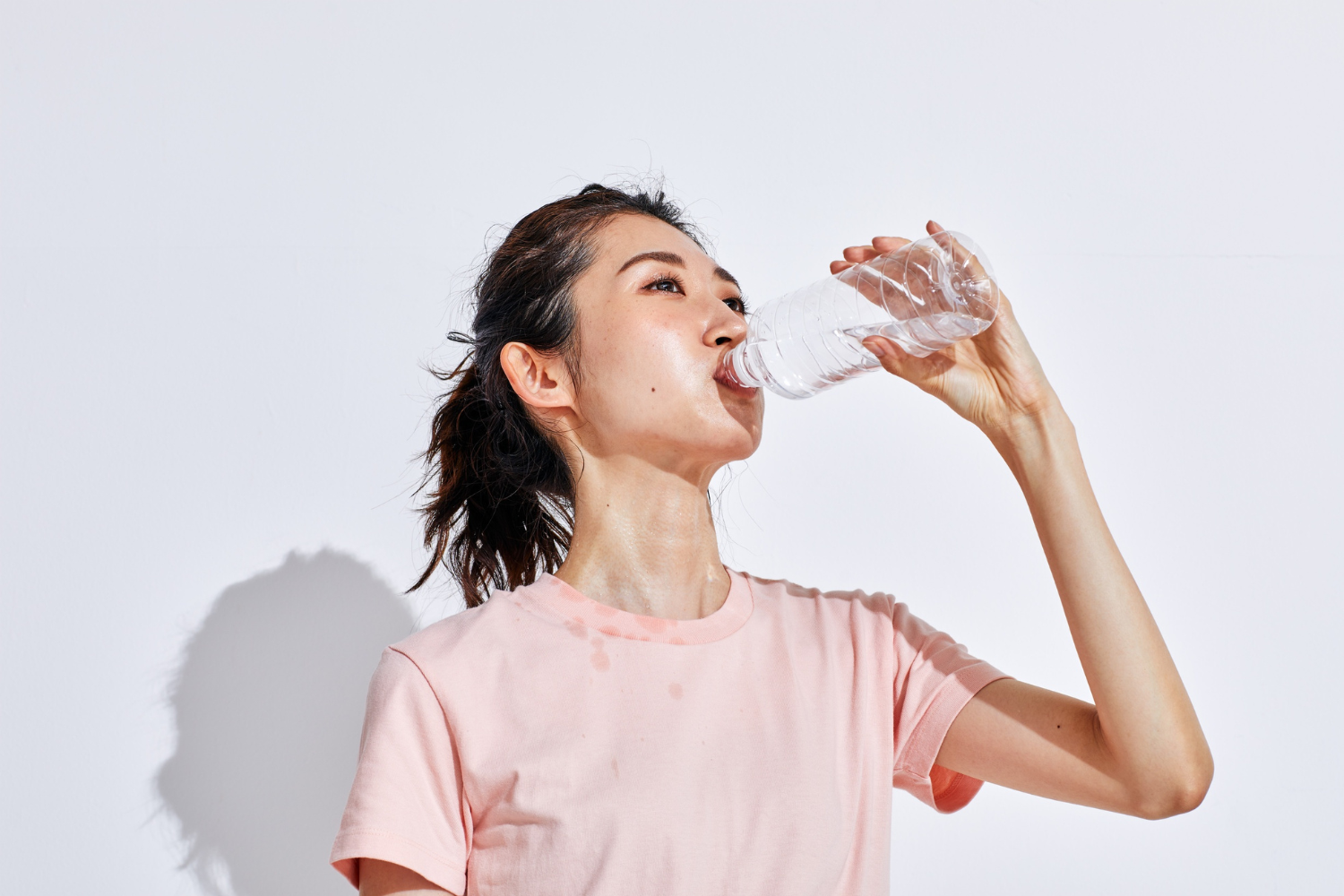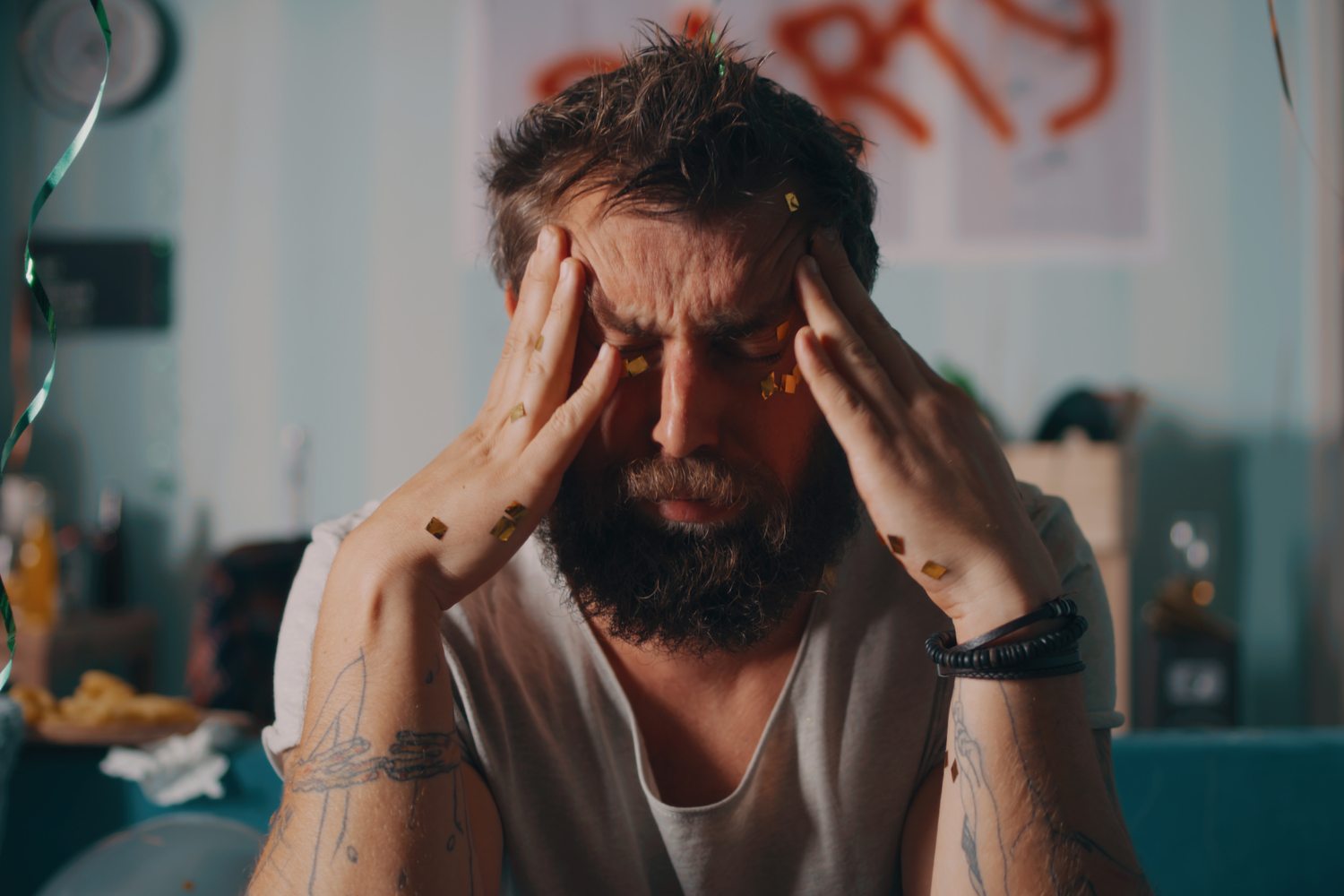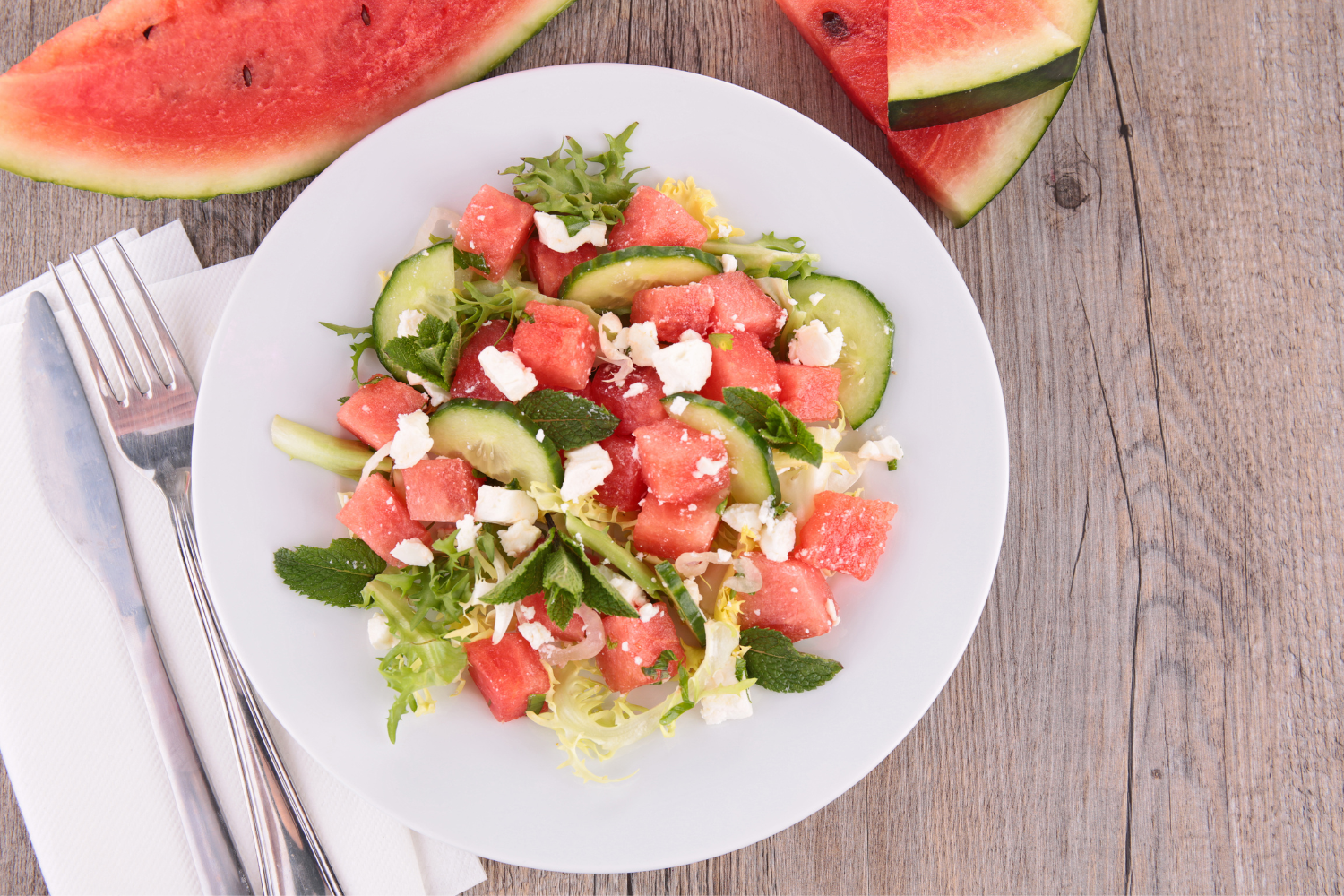After a night of drinking, you may wake up with fatigue, thirst, and dry mouth — common signs of mild dehydration that make hangover symptoms worse. Drinking alcohol pulls more fluids from the body because alcohol is a diuretic, leading to fluid loss and less urine production control. Without enough water and electrolytes, the body struggles to function properly, leaving you feeling sluggish and drained.
The time it takes to rehydrate after alcohol consumption depends on how much alcohol you had, what else you drank, and other factors like food and rest. This article explains how long it can take to rehydrate after drinking, what affects recovery, and safe ways to speed it up so your body can fully recover.
Why Does Alcohol Dehydrate You?
Alcohol dehydration happens because alcohol is a diuretic, which makes the body produce more urine and lose fluids faster than usual. Extra fluid loss also flushes out electrolytes like sodium, potassium, and magnesium that the body needs to stay hydrated. Without enough fluids and electrolytes, the body can’t balance hydration levels, which makes next-day fatigue and other hangover symptoms worse.

How Long Does It Take to Rehydrate After Drinking?
The time it takes to rehydrate after drinking depends on dehydration levels and how much alcohol was consumed. If you are mildly dehydrated, drinking fluids and replacing electrolytes may help you recover within several hours. Depending on the level of fluid loss, it may take up to 24 hours or longer for the body to restore normal hydration levels, even with steady water and electrolyte intake.
Other factors can change how long it takes to rehydrate after drinking:
-
How much alcohol you drank: The more alcohol consumed, the longer recovery may take.
-
Your body weight and metabolism: These affect how quickly fluids are processed and replaced.
-
How much water or food you had with alcohol: Eating and drinking fluids can reduce dehydration symptoms.
-
Heat, activity, or sweat levels: More fluid loss from sweating increases the need for more water and electrolytes.

What Are the Signs You’re Still Dehydrated?
Even after drinking fluids, dehydration symptoms can linger if the body hasn’t regained enough balance. Paying attention to common signs can help you know if more fluids or electrolytes are needed.
-
Dry mouth or excessive thirst: The body’s natural signal for more water.
-
Headache or dizziness: Low fluid levels can affect blood pressure and circulation.
-
Dark urine or low urine output: An indicator that urine concentration is high and more fluids are needed.
-
Fatigue, low energy, or brain fog: Dehydration can affect energy and focus, making it more difficult to feel your best.

How to Rehydrate Faster After Drinking
Rehydration after alcohol consumption works best with a steady approach that restores both fluids and electrolytes. Simple strategies can support hydration and help you feel better after drinking.
Drink Water Consistently
Sip water throughout the day instead of drinking a large amount all at once. Spacing out your water consumption helps the body reabsorb water more effectively, replacing fluid loss without overloading the stomach.
Add Electrolytes
Electrolytes like sodium, potassium, and magnesium are lost during alcohol induced dehydration. Adding sports drinks, rehydration packets, or electrolyte-rich foods helps support hydration by replenishing lost electrolytes.
Eat Hydrating Foods
Water-rich foods such as watermelon, oranges, cucumbers, and leafy greens provide fluids along with vitamins and minerals. Eating these foods while drinking fluids gives the body more support in recovering from alcohol dehydration.
Try Rehydration Mixes or Oral Solutions
If dehydration symptoms feel strong, rehydration mixes or oral solutions can work faster than plain water. They provide fluids and electrolytes in a form the body absorbs quickly, which may support rehydration following high alcohol intake or when hydration levels are significantly reduced.
Supportive Supplements
Drinkwel supplements provide nutrients studied for their roles in supporting hydration and liver function during periods of alcohol intake recovery. Supplements like these can be used along with water and electrolytes to support recovery after alcohol use.

What to Avoid When Rehydrating
Not everything you drink after alcohol use helps the body recover. Some choices can make dehydration worse and delay recovery, so it’s important to know what to skip.
-
More alcohol: The “hair of the dog” approach adds more alcohol induced dehydration and slows recovery.
-
Too much caffeine: Coffee or energy drinks can increase fluid loss and cause more urine output.
-
Sugary energy drinks: Excess sugar can upset the stomach and worsen electrolyte imbalance.
How to Stay Hydrated While Drinking
Taking steps to prevent dehydration while drinking alcohol reduces the risk of hangover symptoms and makes recovery easier. Simple habits can keep hydration levels steadier through the night.
-
Alternate alcohol with water: Drink water between alcoholic beverages to slow fluid loss.
-
Eat salty snacks to support electrolyte balance: Light amounts of sodium help the body hold fluids.
-
Choose drinks lower in alcohol content: Beverages with less alcohol create less fluid loss.
-
Plan hydration before, during, and after drinking: Drinking fluids consistently helps prevent dehydration from reaching severe levels.
Rehydration Takes Time, but You Can Support It
Most people take several hours to rehydrate after drinking, though recovery depends on how much alcohol was consumed and the hydration steps taken before, during, and after. Practicing smart hydration can lessen dehydration symptoms and help the body recover more smoothly. For added support, Drinkwel supplements provide nutrients that help support hydration and maintain healthy liver function when consumed as part of a balanced lifestyle.
Frequently Asked Questions
How much water should I drink after alcohol to rehydrate?
Aim for at least a few glasses of water, spaced out steadily, instead of drinking it all at once.
Do electrolytes help you rehydrate faster after drinking?
Yes, electrolytes help replenish minerals like sodium, potassium, and magnesium that are lost during alcohol use, supporting fluid balance.
Can I rehydrate overnight after drinking?
Yes, many people recover hydration overnight if they drink plenty of fluids and rest.
How do I know if I’m fully rehydrated?
Clear or light-colored urine, steady energy, and no thirst are common signs hydration levels are back to normal.
What foods help with hydration after alcohol?
Water-rich foods like watermelon, oranges, cucumbers, and leafy greens support fluid balance along with drinking fluids.
References
-
Aghsaeifard, Z., Heidari, G., & Alizadeh, R. (2022). Understanding the use of oral rehydration therapy: A narrative review from clinical practice to main recommendations. Health science reports, 5(5), e827. https://doi.org/10.1002/hsr2.827
-
Armstrong, L. E., & Johnson, E. C. (2018). Water Intake, Water Balance, and the Elusive Daily Water Requirement. Nutrients, 10(12), 1928. https://doi.org/10.3390/nu10121928
-
Hahn R. G. (2024). Detection of low urine output by measuring urinary biomarkers. BMC nutrition, 10(1), 13. https://doi.org/10.1186/s40795-024-00823-3
-
Maughan, R. J., & Griffin, J. (2003). Caffeine ingestion and fluid balance: a review. Journal of human nutrition and dietetics : the official journal of the British Dietetic Association, 16(6), 411–420. https://doi.org/10.1046/j.1365-277x.2003.00477.x
-
Penning, R., McKinney, A., & Verster, J. C. (2012). Alcohol hangover symptoms and their contribution to the overall hangover severity. Alcohol and alcoholism (Oxford, Oxfordshire), 47(3), 248–252. https://doi.org/10.1093/alcalc/ags029
-
Polhuis, K. C. M. M., Wijnen, A. H. C., Sierksma, A., Calame, W., & Tieland, M. (2017). The Diuretic Action of Weak and Strong Alcoholic Beverages in Elderly Men: A Randomized Diet-Controlled Crossover Trial. Nutrients, 9(7), 660. https://doi.org/10.3390/nu9070660
